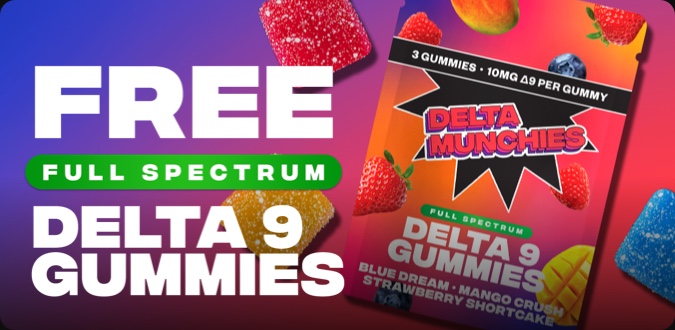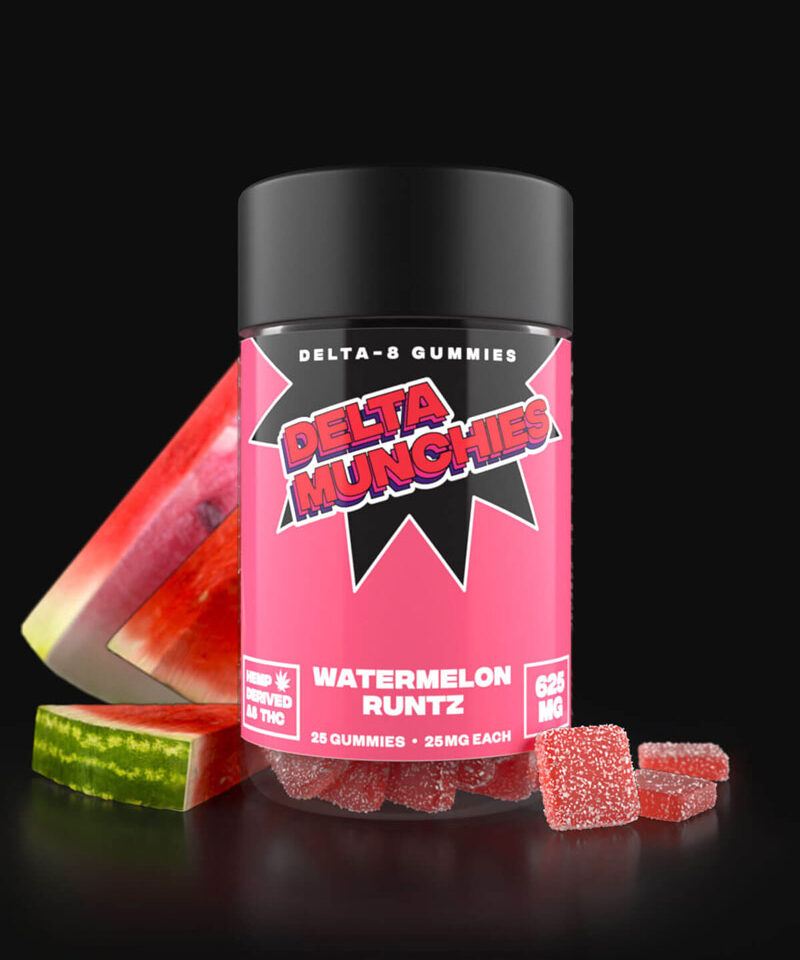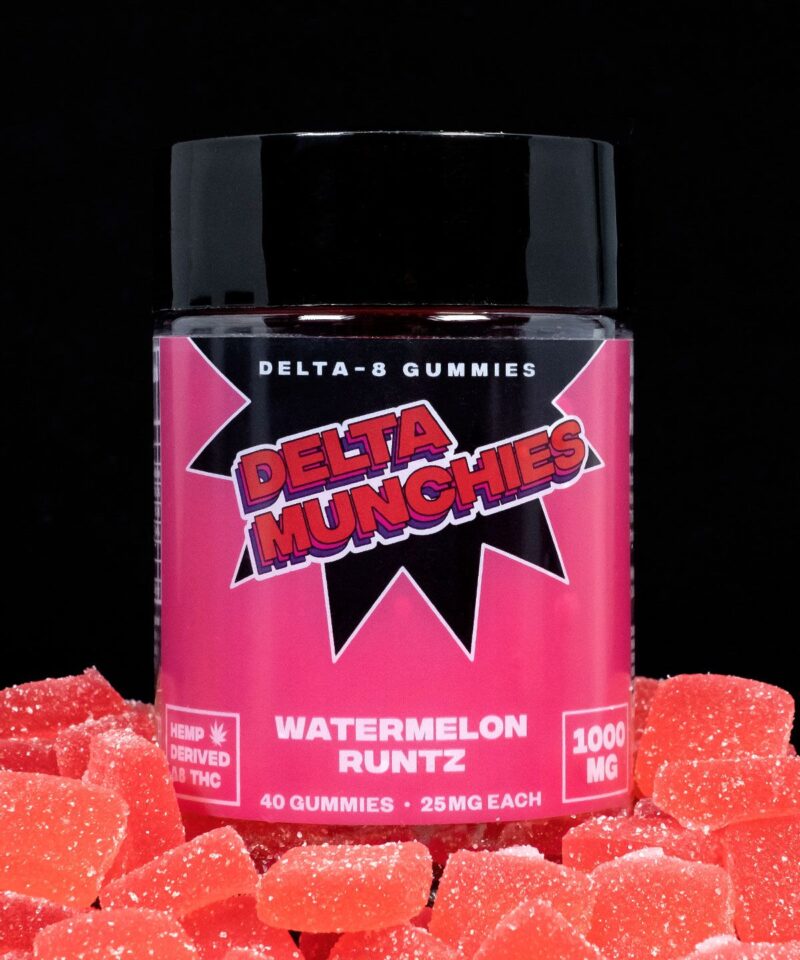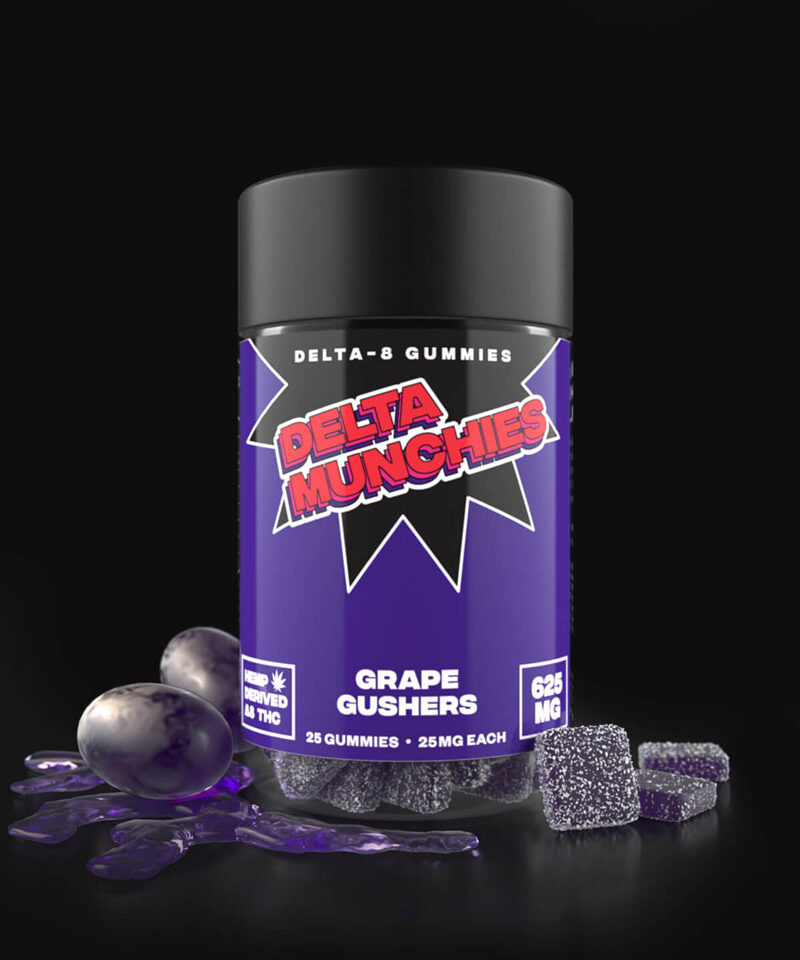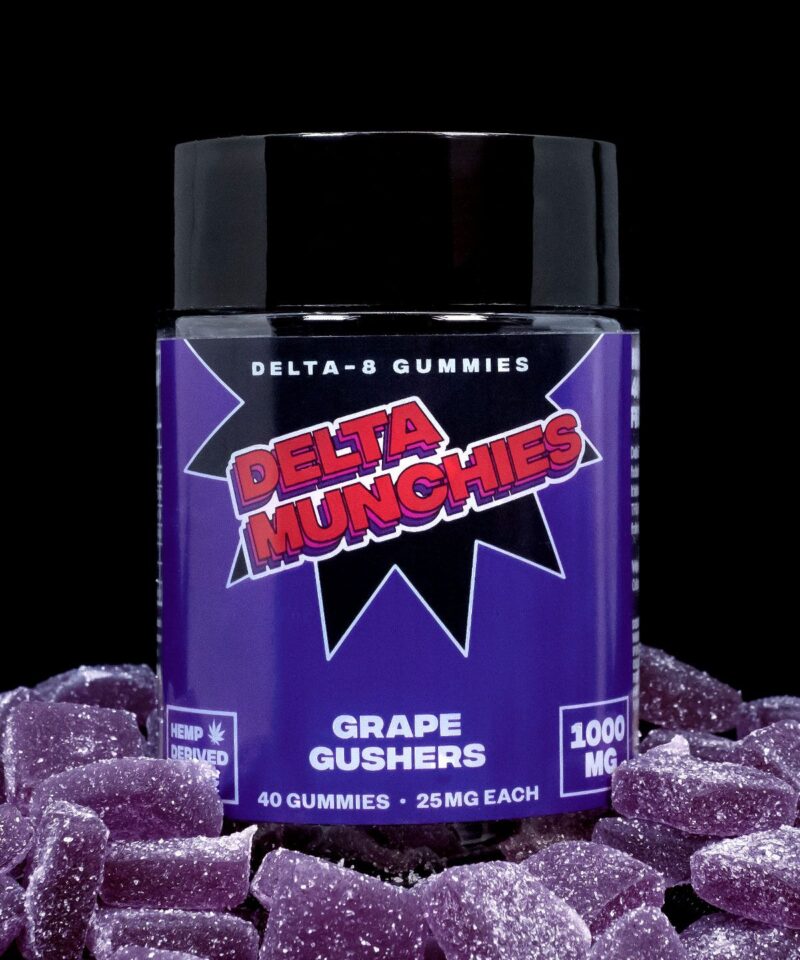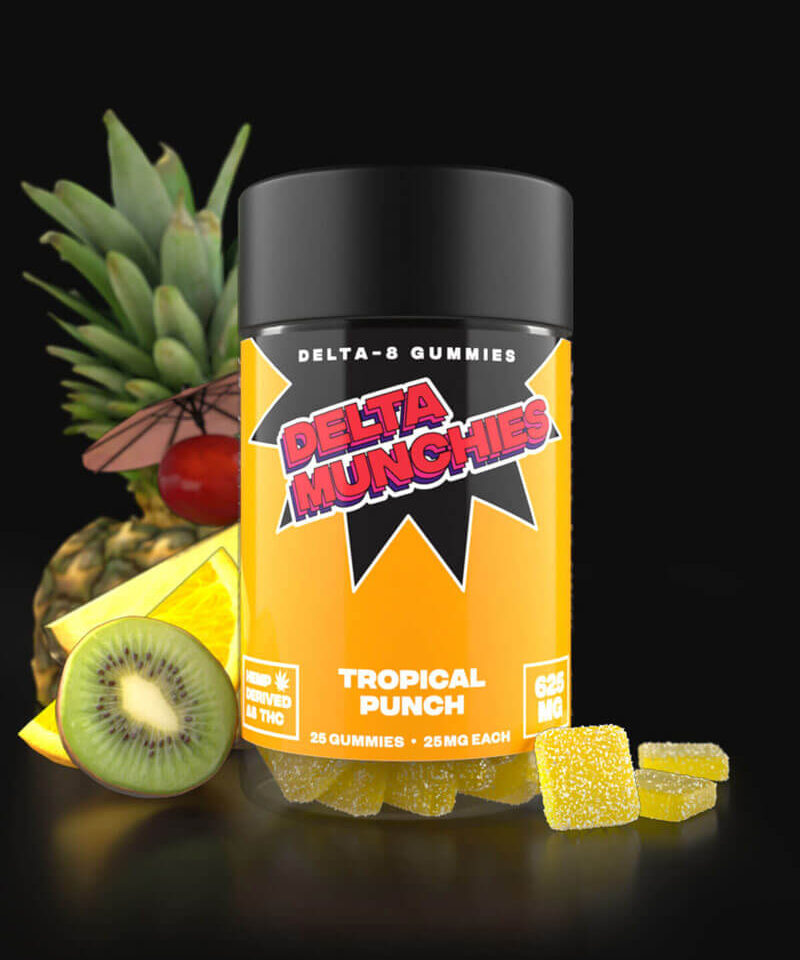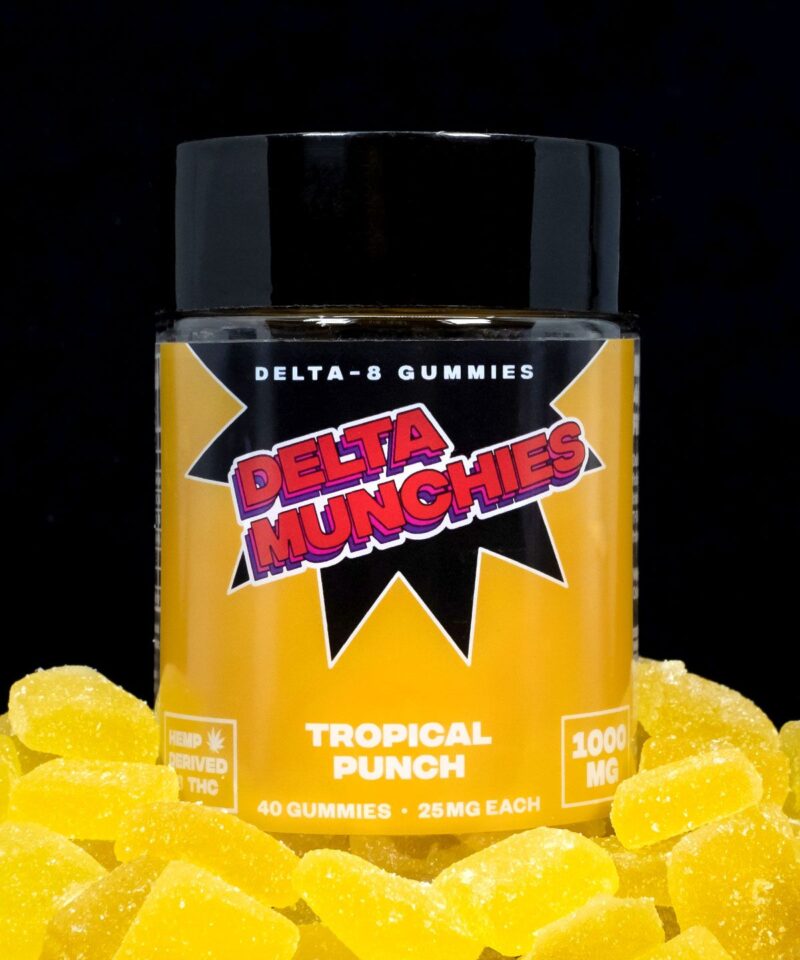Delta 8, Informative
Are Delta 8 Gummies Gluten Free?
Gluten is a protein found in wheat, rye, and barley. It’s what gives bread its chewy texture and beer its foamy head. Some people are allergic to gluten and can’t eat it. Others have celiac disease, an autoimmune disorder that damages the small intestine when they eat gluten.
With this background information in mind, you might be wondering if delta 8 gummies are gluten-free. You have come to the right place!
In this article, we will provide a comprehensive answer to this question.
We will look at what gluten is and why people eat gluten-free. We will also recommend some of the best delta 8 gummies that are healthy and pack a punch that will give you the mellow high you are looking for while providing all the potential benefits of delta 8 THC.
Looking for an unforgettable edible? Delta Munchies has you covered.
Delta 8 THC
Delta 8 THC
Delta 8 THC
Contents
What is Gluten and Why is it Bad?
Gluten is a family of proteins found in cereal grains, such as wheat, rye, and barley. Formally known as prolamins, these proteins are present in the grain’s endosperm. However, all grains don’t have the same type of gluten.
For instance, gliadins and glutenins are found in wheat, secalins in rye, and hordeins in barley. Out of these three grains, wheat has the highest amount of gluten.
When flour is made from any of these grains, the gluten proteins form a sticky network that gives dough its elasticity. This is why bread rises and has a chewy texture.
Gluten is also responsible for the “flour power” that allows the dough to be rolled out thinly without breaking. When baked, gluten helps bread retain its shape and gives it a nice, crusty texture.
Thanks to its unique properties, gluten is added to processed foods as a binding agent, stabilizer, or thickener. It can be found in soy sauce, salad dressings, candy bars, and even ice cream!
Gluten makes up a significant amount of all diets today. Research estimates it makes up 5-20g of western diets daily.
While not all people are affected by gluten, some may experience an adverse reaction to it. This is where we introduce a new term – gluten intolerance.
Gluten intolerance is a general term used to describe all conditions that are triggered by the ingestion of gluten.
These conditions include:
Celiac Disease
Celiac disease is an autoimmune disorder that can damage the lining of the small intestine. It is estimated that this disease affects about 1% of the world’s population, even though figures could be higher in Mexico, Finland, and certain areas in North America.
Non-Celiac Gluten Sensitivity (NCGS)
NCGS is a condition where people experience symptoms after consuming gluten, even though they don’t have celiac disease.
It’s important to note that NCGS is not the same as celiac disease. Celiac disease is an autoimmune disorder, while NCGS is not.
Wheat Allergy
A wheat allergy is different from celiac disease or NCGS. This is because a wheat allergy is triggered by an immune reaction to one of the proteins found in wheat, especially gluten.
Autoimmune Diseases
Several autoimmune diseases like diabetes, psoriasis, and multiple sclerosis have been linked to gluten.
Research shows that people with celiac disease are more likely to develop autoimmune diseases. This is because the diseases share common genetic risk factors and immune pathways through what is known as Molecular mimicry.
Why Do People Eat Gluten Free
The gluten-free market was estimated to be $5.9 billion and is expected to hit $6.4 billion by the end of 2022. What could be the reason behind this shift to gluten-free products?
Below are some reasons why people eat gluten-free:
Celiac Disease is on the Rise, But Many Remain Undiagnosed
As mentioned earlier, some people don’t know they have celiac disease. This is because the symptoms may be mild or nonexistent. In fact, research shows that over 80% of people with this disease don’t even know they have it.
However, this doesn’t mean that the condition isn’t present and causing damage to their bodies. Consuming gluten can lead to malabsorption, which means the body can’t absorb nutrients properly. This can lead to deficiencies in iron, calcium, vitamin D, and other essential nutrients.
Going gluten-free may be the only way to stop the damage caused by celiac disease and allow the body to heal.
Gluten-Free Diets May Help With IBS Symptoms
IBS is a condition that affects the digestive system. It’s characterized by abdominal pain, bloating, diarrhea, and constipation.
While there is no cure for IBS, some people find that following a gluten-free diet helps to reduce their symptoms. This is because gluten has been shown to cause inflammation in the gut, which can aggravate the symptoms of IBS.
A Gluten-Free Diet May Help With Weight Loss
If you’re trying to lose weight, cutting out gluten may help you to reach your goals. This is because gluten-containing foods are often high in calories and fat. Research shows that gluten is responsible for weight gain and obesity.
In addition, going gluten-free has been shown to reduce inflammation in the body, which can lead to weight loss.
Gluten-Free Diets May Improve Brain Function
Gluten can cause severe inflammation in the brain, which can lead to neurological problems. This is known as gluten-sensitive idiopathic neuropathy or gluten ataxia. Research shows that this disease causes irreversible damage to the cerebellum, a part of the brain that controls movement.
There are many statistical associations between gluten intake and neurological problems. There is also evidence in controlled trials that a gluten-free diet can improve the symptoms of gluten ataxia.
Gluten Is Addictive
Another reason why people may want to avoid gluten is that it’s addictive. Gluten contains a protein called gliadin, which has been shown to be similar to morphine. This means that it can have a narcotic effect on the brain and lead to addiction.
In addition, research shows that gluten can cause gut dysbiosis, which is an imbalance in the gut microbiota. This can lead to cravings for gluten-containing foods and make it difficult to stick to a gluten-free diet.
Do Gummies Have Gluten?
Gummies are made using gelatin, which is a protein derived from animals. This means that gummies do not contain gluten.
However, some gummies may be made with wheat-derived glucose syrup or other gluten ingredients. So, it’s important to check the label to ensure that the gummies you’re eating are gluten-free.
If you are unsure, you can always contact the manufacturer and ask.
Are Delta 8 Gummies Gluten Free?
Truthfully, the answer to this question is a little bit complicated. Delta 8 THC is derived from hemp or marijuana, which does not contain gluten. However, some manufacturers add gluten-containing ingredients to their products during manufacturing.
This means that not all D8 products are gluten free.
To be safe, always check the labels of delta 8 products before purchasing them. Make sure that the product does not contain any gluten-containing ingredients.
You should also contact the manufacturer to ask about their manufacturing process and whether or not their products are gluten free.
Best Gluten Free Delta 8 Gummies
While the market is flooded with thousands of delta 8 products that claim to be gluten-free, very few of them actually are. However, at Delta Munchies, we have created a line of delicious and safe gummies for those with gluten sensitivities. Our gummies are made with natural ingredients and free of artificial flavorings or colors.
Below are some of our healthiest and most popular gluten-free delta gummies:
Watermelon Runtz Gummies
Delta 8 THC
Our Watermelon Runtz gummies are packed with juicy watermelon flavor. Each gummy contains 20mg of delta 8, making it a perfect choice for those looking for a strong experience. These gummies are also 100% gluten-free, so you can enjoy them without worry. Their potency will give you a mellow high that will last for hours.
Tropical Punch Gummies
Delta 8 THC
You know that delta 8 gummies stay in your system for several hours, right? But not many gummies pack as much of a punch as our Tropical Punch gummies. With a perfect blend of sweet and sour, these gummies are sure to please. Each gummy contains 25mg of delta 8, making them one of the strongest edibles on our portfolio.
Grape Gushers
Delta 8 THC
Our Grape Gushers are a blend of renowned strains, including Gelato, Zkittlez, OG Kush, and Grape Ape. These legendary strains are combined to create a one-of-a-kind gummy that is both potent and delicious. Whether you need a gummy to wind down after a long day or one that will help you relax and sleep, our Grape Gushers are perfect for you.
Where To Buy Delta 8 Gummies
Delta Munchies is your one-stop shop when it comes to all things delta 8. We have an extensive inventory of gluten-free gummies that are perfect for those with Celiac disease or gluten sensitivities. Whether you’re looking for a specific flavor or want to try something new, we’ve covered you.
Delta 8 THC
Delta 8 THC
Delta 8 THC
Our D8 gummies are made with natural ingredients and are completely free of artificial flavors, colors, and preservatives. We use only the highest quality delta 8 isolate and infuse it into our gummies using a proprietary process. This ensures that each gummy is perfectly consistent and contains the exact amount of delta 8 THC.
All our gummies are third-party lab tested for purity and potency, so you can be sure you’re getting a high-quality product.
To us, it doesn’t matter whether you’re a first-time customer or a longtime fan – your satisfaction is always our top priority. Order your gluten-free delta-eight gummies today, and we will deliver them right to your door.
As always, feel free to contact us if you have any questions or need help choosing the right product for your needs.
To learn more about the symptoms of gluten intolerance, watch this video. It shows nine symptoms that tell you you are gluten intolerant even though you are non-celiac.



